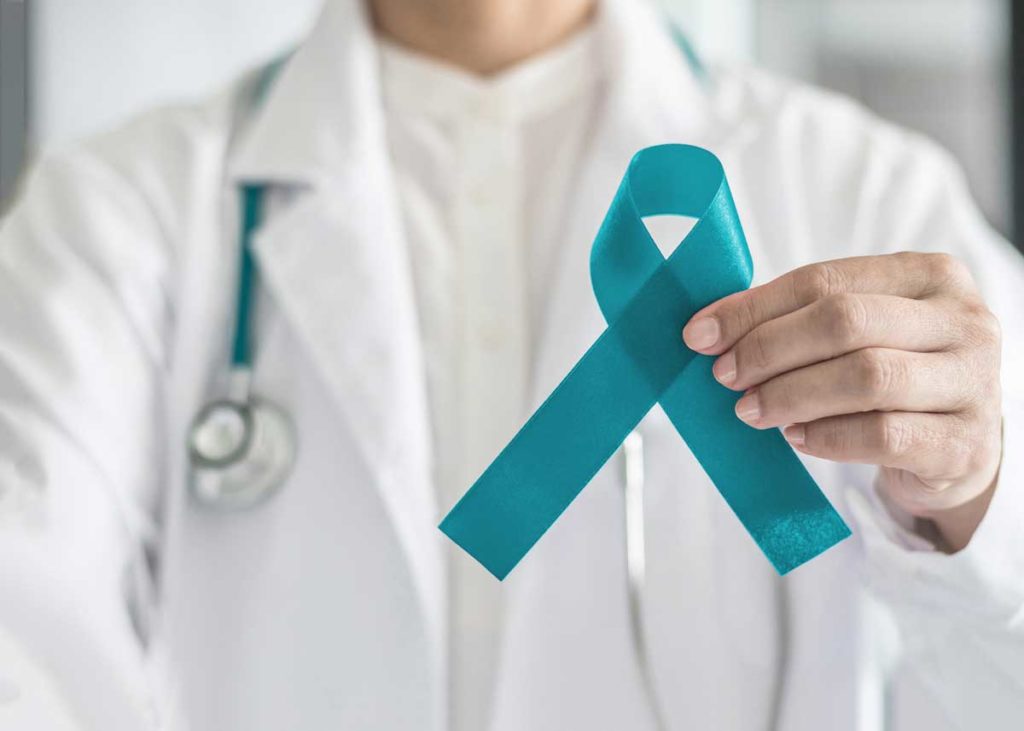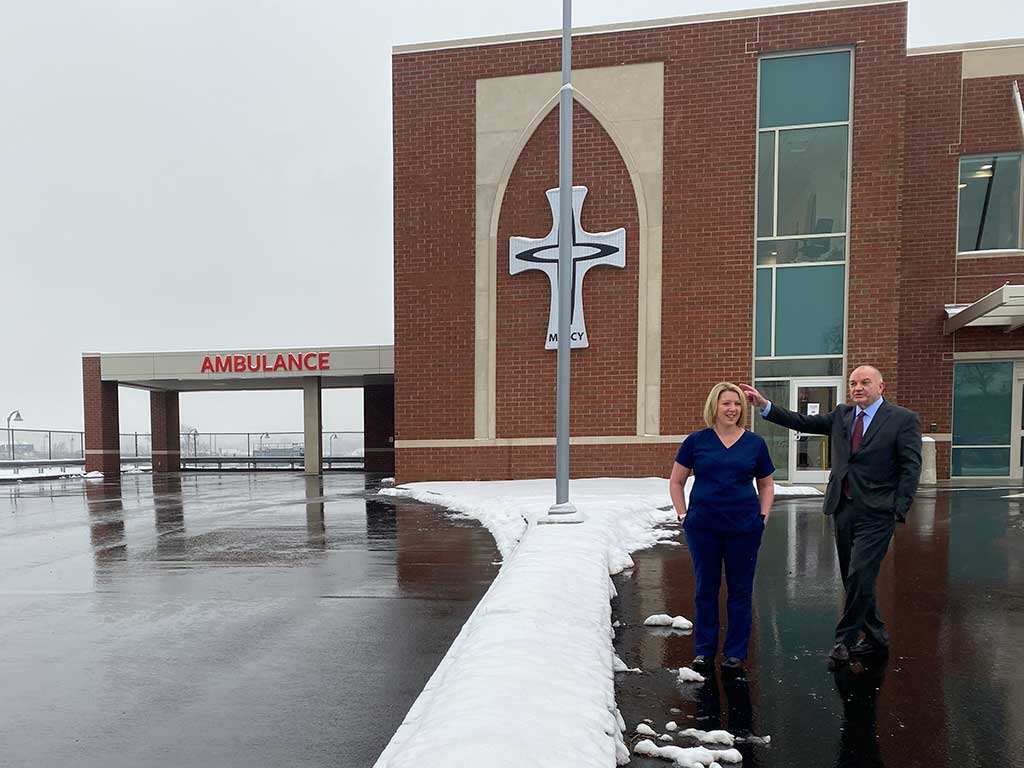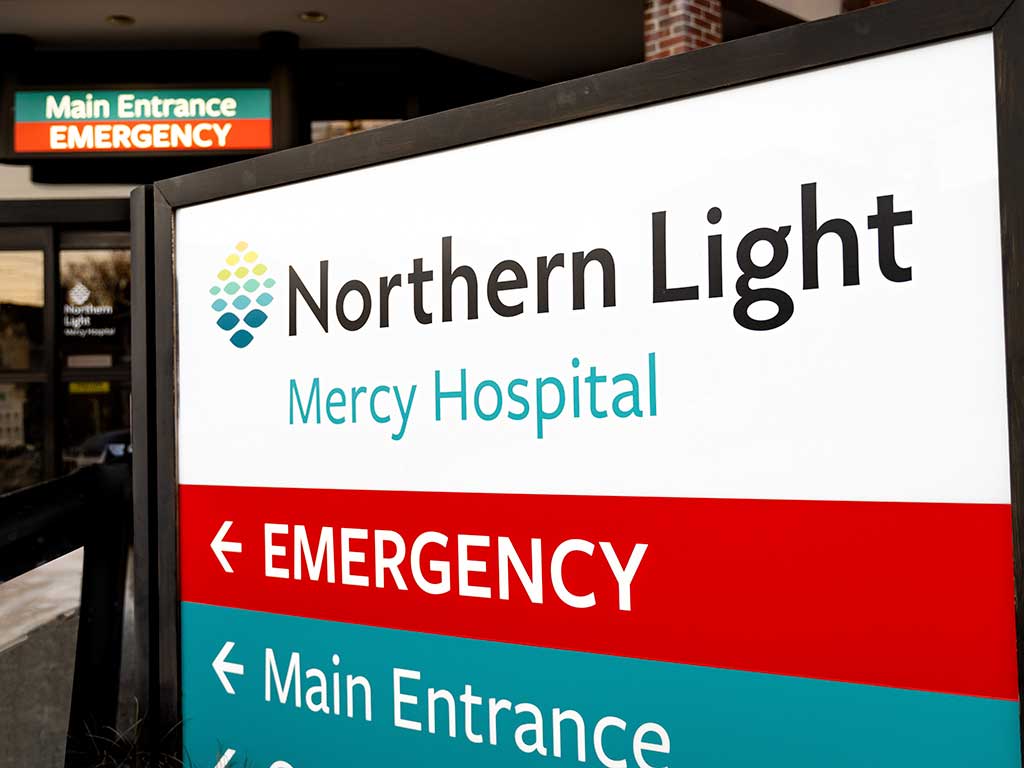By Christopher Pezzullo, DO

The teal awareness ribbon is the symbolic bow for supporting patients with Ovarian/Cervical cancer. © Chinnapong / Adobe Stock
The human papillomavirus (HPV) can cause cancer and is a common infection. In fact, 9 out of 10 adults — both men and women — are infected with HPV at some point in their lives. Fortunately, there is a vaccine that will prevent this infection from ever occurring and therefore prevent many of the cancers it causes.
Mission: HPV Cancer Free
In June, the American Cancer Society launched a public health campaign, “Mission: HPV Cancer Free,” which seeks to eliminate vaccine-preventable HPV cancers, starting with cervical cancer. Nearly all cases of cervical cancer are caused by HPV. The vaccine is recommended for both boys and girls, and it’s most effective when given at age 11 or 12, allowing for immunity build-up to occur prior to exposure. Through vaccination of young people and screening of women, we have the tools to eliminate cervical cancer.
But the HPV vaccine can prevent more than just cervical cancer. In fact, it prevents a total of six cancers that affect both men and women, with throat cancer as the most common HPV related cancer in men.
The “Mission: HPV Cancer Free” campaign goal is to reach an annual vaccination rate of 80 percent of young people by 2026. While it’s a daunting goal, it’s possible to reach it through the combined efforts of the public and all the organizations working to support it. I invite you to visit www.cancer.org/hpv to learn more.
The HPV Vaccine
The HPV vaccine, which has been carefully studied by medical and scientific experts, has been shown to be very effective and safe. Like other shots, most side effects, such as pain or redness in the arm, are mild and should go away quickly. It’s also important to note that the HPV vaccine is not associated with any long-term side effects. Since 2006, about 57 million doses of the vaccine have been distributed in the U.S., and no serious safety concerns have been identified by years of study and monitoring.
The results of the vaccine have been impressive. Since the first HPV vaccine was recommended in 2006, vaccine-type HPV infections among teen girls have been reduced by 64 percent. In other countries, such as Australia where HPV vaccination rates are higher than in the U.S., larger decreases have been observed.
While more and more young people in the U.S. are receiving the vaccine, only 40 percent are currently protected. In the United States, 6 out of 10 of girls and boys aged 13-17 have started the HPV vaccination series, while only 4 out of 10 are up to date on getting the full series. In Cumberland County, about 57 percent of adolescents aged 13 to 17 are currently vaccinated against HPV. While this is higher than the national average, we can do better.
 As a physician at Mercy Hospital’s Harry E. Davis Pediatric Center, I work to educate parents and patients on HPV and the vaccine. Please help me spread the word about this important, preventative health measure. We have an unprecedented opportunity to save lives and reduce the HPV cancer burden. Let’s work together to make sure more of our children are protected.
As a physician at Mercy Hospital’s Harry E. Davis Pediatric Center, I work to educate parents and patients on HPV and the vaccine. Please help me spread the word about this important, preventative health measure. We have an unprecedented opportunity to save lives and reduce the HPV cancer burden. Let’s work together to make sure more of our children are protected.
Dr. Christopher Pezzullo
Better known as Dr. Chris by his patients, he joined the Harry E. Davis Pediatric Center at Mercy Hospital in 2017.





